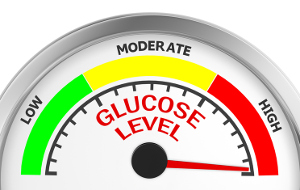afterLoad (456.3KB) (4.66ms)
afterInitialise (1.27MB) (57.75ms)
afterRoute (827.66KB) (22.85ms)
beforeRenderComponent com_content (35.2KB) (324μs)
Before Access::preloadComponents (all components) (67.27KB) (575μs)
After Access::preloadComponents (all components) (98.07KB) (9.44ms)
Before Access::preloadPermissions (com_content) (1.6KB) (20μs)
After Access::preloadPermissions (com_content) (3.29MB) (40.06ms)
Before Access::getAssetRules (id:62 name:com_content.category.20) (130.65KB) (135μs)
After Access::getAssetRules (id:62 name:com_content.category.20) (7.38KB) (60μs)
Before Access::getAssetRules (id:8 name:com_content) (51.77KB) (73.46ms)
After Access::getAssetRules (id:8 name:com_content) (6.17KB) (44μs)
afterRenderComponent com_content (1.5MB) (321ms)
afterDispatch (32.39KB) (4.38ms)
beforeRenderRawModule mod_articles_category (READ MORE...) (398.66KB) (17.67ms)
afterRenderRawModule mod_articles_category (READ MORE...) (59.22KB) (309ms)
beforeRenderRawModule mod_custom (BOOST YOUR IMMUNE DEFENSE) (6.45KB) (43μs)
afterRenderRawModule mod_custom (BOOST YOUR IMMUNE DEFENSE) (4.42KB) (287μs)
beforeRenderRawModule mod_articles_latest (Latest news) (976B) (15μs)
afterRenderRawModule mod_articles_latest (Latest news) (36.1KB) (136ms)
beforeRenderRawModule mod_tags_popular (Search) (2.09KB) (27μs)
afterRenderRawModule mod_tags_popular (Search) (28.02KB) (150ms)
beforeRenderRawModule mod_custom (the Vitamin and Mineral Guide) (960B) (36μs)
afterRenderRawModule mod_custom (the Vitamin and Mineral Guide) (1.02KB) (65μs)
beforeRenderRawModule mod_custom (Weight loss that works) (736B) (12μs)
afterRenderRawModule mod_custom (Weight loss that works) (928B) (24μs)
beforeRenderRawModule mod_custom (Get additionel and more detailed knowledge ) (752B) (9μs)
afterRenderRawModule mod_custom (Get additionel and more detailed knowledge ) (944B) (20μs)
beforeRenderRawModule mod_custom (Q10 goes by many names) (736B) (10μs)
afterRenderRawModule mod_custom (Q10 goes by many names) (928B) (19μs)
beforeRenderRawModule mod_custom (Check this before you buy a Q10 product) (752B) (9μs)
afterRenderRawModule mod_custom (Check this before you buy a Q10 product) (944B) (1.1ms)
beforeRenderRawModule mod_custom (Are you taking supplements) (736B) (29μs)
afterRenderRawModule mod_custom (Are you taking supplements) (2.28KB) (42μs)
beforeRenderRawModule mod_custom (Antiaging) (720B) (11μs)
afterRenderRawModule mod_custom (Antiaging) (912B) (22μs)
beforeRenderRawModule mod_custom (Exercise) (720B) (9μs)
afterRenderRawModule mod_custom (Exercise) (912B) (18μs)
beforeRenderRawModule mod_custom (Useful Links) (720B) (9μs)
afterRenderRawModule mod_custom (Useful Links) (1.02KB) (18μs)
beforeRenderModule mod_articles_category (READ MORE...) (268.2KB) (4.31ms)
afterRenderModule mod_articles_category (READ MORE...) (1.25KB) (97μs)
beforeRenderModule mod_custom (BOOST YOUR IMMUNE DEFENSE) (6.81KB) (17μs)
afterRenderModule mod_custom (BOOST YOUR IMMUNE DEFENSE) (1.28KB) (27μs)
beforeRenderModule mod_articles_latest (Latest news) (592B) (11μs)
afterRenderModule mod_articles_latest (Latest news) (1.27KB) (22μs)
beforeRenderModule mod_tags_popular (Search) (1.73KB) (12μs)
afterRenderModule mod_tags_popular (Search) (1.27KB) (21μs)
beforeRenderModule mod_custom (the Vitamin and Mineral Guide) (1.31KB) (9μs)
afterRenderModule mod_custom (the Vitamin and Mineral Guide) (1.28KB) (21μs)
beforeRenderModule mod_custom (Weight loss that works) (336B) (8μs)
afterRenderModule mod_custom (Weight loss that works) (1.27KB) (20μs)
beforeRenderModule mod_custom (Get additionel and more detailed knowledge ) (368B) (9μs)
afterRenderModule mod_custom (Get additionel and more detailed knowledge ) (1.3KB) (20μs)
beforeRenderModule mod_custom (Q10 goes by many names) (336B) (9μs)
afterRenderModule mod_custom (Q10 goes by many names) (1.27KB) (19μs)
beforeRenderModule mod_custom (Check this before you buy a Q10 product) (352B) (8μs)
afterRenderModule mod_custom (Check this before you buy a Q10 product) (1.28KB) (20μs)
beforeRenderModule mod_custom (Are you taking supplements) (352B) (8μs)
afterRenderModule mod_custom (Are you taking supplements) (1.28KB) (20μs)
beforeRenderModule mod_custom (Antiaging) (336B) (8μs)
afterRenderModule mod_custom (Antiaging) (1.27KB) (19μs)
beforeRenderModule mod_custom (Exercise) (336B) (9μs)
afterRenderModule mod_custom (Exercise) (1.25KB) (19μs)
beforeRenderModule mod_custom (Useful Links) (336B) (713μs)
afterRenderModule mod_custom (Useful Links) (3.77KB) (63μs)
beforeRenderRawModule mod_menu (Main Menu - English) (37.51KB) (1.76ms)
afterRenderRawModule mod_menu (Main Menu - English) (190.16KB) (5.51ms)
beforeRenderModule mod_menu (Main Menu - English) (720B) (7μs)
afterRenderModule mod_menu (Main Menu - English) (4.86KB) (79μs)
beforeRenderRawModule mod_languages (Sprogskift) (3.94KB) (21μs)
afterRenderRawModule mod_languages (Sprogskift) (21.82KB) (3.42ms)
beforeRenderModule mod_languages (Sprogskift) (720B) (7μs)
afterRenderModule mod_languages (Sprogskift) (5.31KB) (26μs)
beforeRenderRawModule mod_finder () (6.34KB) (13μs)
afterRenderRawModule mod_finder () (128.59KB) (8.21ms)
beforeRenderModule mod_finder () (704B) (7μs)
afterRenderModule mod_finder () (3.29KB) (42μs)
beforeRenderRawModule mod_custom () (6.62KB) (1.96ms)
afterRenderRawModule mod_custom () (30.89KB) (3.01ms)
beforeRenderModule mod_custom () (704B) (11μs)
afterRenderModule mod_custom () (1.23KB) (86μs)
beforeRenderRawModule mod_menu (Main Menu - English) (5.07KB) (3.94ms)
afterRenderRawModule mod_menu (Main Menu - English) (6.3KB) (912μs)
beforeRenderModule mod_menu (Main Menu - English) (720B) (5μs)
afterRenderModule mod_menu (Main Menu - English) (1.25KB) (63μs)
beforeRenderRawModule mod_languages (Sprogskift Mobil) (912B) (20μs)
afterRenderRawModule mod_languages (Sprogskift Mobil) (3.89KB) (3.61ms)
beforeRenderModule mod_languages (Sprogskift Mobil) (720B) (7μs)
afterRenderModule mod_languages (Sprogskift Mobil) (1.27KB) (44μs)
beforeRenderRawModule mod_finder () (2.3KB) (14μs)
afterRenderRawModule mod_finder () (6.29KB) (1.15ms)
beforeRenderModule mod_finder () (704B) (6μs)
afterRenderModule mod_finder () (1.23KB) (60μs)
beforeRenderRawModule mod_custom () (8.66KB) (212μs)
afterRenderRawModule mod_custom () (904B) (190μs)
beforeRenderModule mod_custom () (704B) (3μs)
afterRenderModule mod_custom () (2.43KB) (27μs)
beforeRenderRawModule mod_custom () (688B) (86μs)
afterRenderRawModule mod_custom () (896B) (103μs)
beforeRenderModule mod_custom () (704B) (3μs)
afterRenderModule mod_custom () (2.71KB) (23μs)
afterRender (300.17KB) (24.34ms)
| 1 x afterRenderComponent com_content (1.5MB) (26.38%) | 321.16ms |
| 1 x afterRenderRawModule mod_articles_category (READ MORE...) (59.22KB) (25.36%) | 308.77ms |
| 1 x afterRenderRawModule mod_tags_popular (Search) (28.02KB) (12.33%) | 150.16ms |
| 1 x afterRenderRawModule mod_articles_latest (Latest news) (36.1KB) (11.18%) | 136.11ms |
| 1 x Before Access::getAssetRules (id:8 name:com_content) (51.77KB) (6.03%) | 73.46ms |
| 1 x afterInitialise (1.27MB) (4.74%) | 57.75ms |
| 1 x After Access::preloadPermissions (com_content) (3.29MB) (3.29%) | 40.06ms |
| 1 x afterRender (300.17KB) (2%) | 24.34ms |
| 1 x afterRoute (827.66KB) (1.88%) | 22.85ms |
| 1 x beforeRenderRawModule mod_articles_category (READ MORE...) (398.66KB) (1.45%) | 17.67ms |
| 1 x After Access::preloadComponents (all components) (98.07KB) (0.78%) | 9.44ms |
| 1 x afterRenderRawModule mod_finder () (128.59KB) (0.67%) | 8.21ms |
| 1 x afterRenderRawModule mod_menu (Main Menu - English) (190.16KB) (0.45%) | 5.51ms |
| 1 x afterLoad (456.3KB) (0.38%) | 4.66ms |
| 1 x afterDispatch (32.39KB) (0.36%) | 4.38ms |
| 1 x beforeRenderModule mod_articles_category (READ MORE...) (268.2KB) (0.35%) | 4.31ms |
| 1 x beforeRenderRawModule mod_menu (Main Menu - English) (5.07KB) (0.32%) | 3.94ms |
| 1 x afterRenderRawModule mod_languages (Sprogskift Mobil) (3.89KB) (0.3%) | 3.61ms |
| 1 x afterRenderRawModule mod_languages (Sprogskift) (21.82KB) (0.28%) | 3.42ms |
| 1 x afterRenderRawModule mod_custom () (30.89KB) (0.25%) | 3.01ms |
| 1 x beforeRenderRawModule mod_custom () (6.62KB) (0.16%) | 1.96ms |
| 1 x beforeRenderRawModule mod_menu (Main Menu - English) (37.51KB) (0.14%) | 1.76ms |
| 1 x afterRenderRawModule mod_finder () (6.29KB) (0.09%) | 1.15ms |
| 1 x afterRenderRawModule mod_custom (Check this before you buy a Q10 product) (944B) (0.09%) | 1.10ms |
| 1 x afterRenderRawModule mod_menu (Main Menu - English) (6.3KB) (0.07%) | 912μs |
| 1 x beforeRenderModule mod_custom (Useful Links) (336B) (0.06%) | 713μs |
| 1 x Before Access::preloadComponents (all components) (67.27KB) (0.05%) | 575μs |
| 1 x beforeRenderComponent com_content (35.2KB) (0.03%) | 324μs |
| 1 x afterRenderRawModule mod_custom (BOOST YOUR IMMUNE DEFENSE) (4.42KB) (0.02%) | 287μs |
| 1 x beforeRenderRawModule mod_custom () (8.66KB) (0.02%) | 212μs |
| 1 x afterRenderRawModule mod_custom () (904B) (0.02%) | 190μs |
| 1 x Before Access::getAssetRules (id:62 name:com_content.category.20) (130.65KB) (0.01%) | 135μs |
| 1 x afterRenderRawModule mod_custom () (896B) (0.01%) | 103μs |
| 1 x afterRenderModule mod_articles_category (READ MORE...) (1.25KB) (0.01%) | 97μs |
| 1 x afterRenderModule mod_custom () (1.23KB) (0.01%) | 86μs |
| 1 x beforeRenderRawModule mod_custom () (688B) (0.01%) | 86μs |
| 1 x afterRenderModule mod_menu (Main Menu - English) (4.86KB) (0.01%) | 79μs |
| 1 x afterRenderRawModule mod_custom (the Vitamin and Mineral Guide) (1.02KB) (0.01%) | 65μs |
| 1 x afterRenderModule mod_custom (Useful Links) (3.77KB) (0.01%) | 63μs |
| 1 x afterRenderModule mod_menu (Main Menu - English) (1.25KB) (0.01%) | 63μs |
| 1 x afterRenderModule mod_finder () (1.23KB) (0%) | 60μs |
| 1 x After Access::getAssetRules (id:62 name:com_content.category.20) (7.38KB) (0%) | 60μs |
| 1 x After Access::getAssetRules (id:8 name:com_content) (6.17KB) (0%) | 44μs |
| 1 x afterRenderModule mod_languages (Sprogskift Mobil) (1.27KB) (0%) | 44μs |
| 1 x beforeRenderRawModule mod_custom (BOOST YOUR IMMUNE DEFENSE) (6.45KB) (0%) | 43μs |
| 1 x afterRenderRawModule mod_custom (Are you taking supplements) (2.28KB) (0%) | 42μs |
| 1 x afterRenderModule mod_finder () (3.29KB) (0%) | 42μs |
| 1 x beforeRenderRawModule mod_custom (the Vitamin and Mineral Guide) (960B) (0%) | 36μs |
| 1 x beforeRenderRawModule mod_custom (Are you taking supplements) (736B) (0%) | 29μs |
| 1 x afterRenderModule mod_custom (BOOST YOUR IMMUNE DEFENSE) (1.28KB) (0%) | 27μs |
| 1 x afterRenderModule mod_custom () (2.43KB) (0%) | 27μs |
| 1 x beforeRenderRawModule mod_tags_popular (Search) (2.09KB) (0%) | 27μs |
| 1 x afterRenderModule mod_languages (Sprogskift) (5.31KB) (0%) | 26μs |
| 1 x afterRenderRawModule mod_custom (Weight loss that works) (928B) (0%) | 24μs |
| 1 x afterRenderModule mod_custom () (2.71KB) (0%) | 23μs |
| 1 x afterRenderRawModule mod_custom (Antiaging) (912B) (0%) | 22μs |
| 1 x afterRenderModule mod_articles_latest (Latest news) (1.27KB) (0%) | 22μs |
| 1 x afterRenderModule mod_tags_popular (Search) (1.27KB) (0%) | 21μs |
| 1 x afterRenderModule mod_custom (the Vitamin and Mineral Guide) (1.28KB) (0%) | 21μs |
| 1 x beforeRenderRawModule mod_languages (Sprogskift) (3.94KB) (0%) | 21μs |
| 1 x Before Access::preloadPermissions (com_content) (1.6KB) (0%) | 20μs |
| 1 x afterRenderRawModule mod_custom (Get additionel and more detailed knowledge ) (944B) (0%) | 20μs |
| 1 x afterRenderModule mod_custom (Weight loss that works) (1.27KB) (0%) | 20μs |
| 1 x afterRenderModule mod_custom (Check this before you buy a Q10 product) (1.28KB) (0%) | 20μs |
| 1 x afterRenderModule mod_custom (Are you taking supplements) (1.28KB) (0%) | 20μs |
| 1 x beforeRenderRawModule mod_languages (Sprogskift Mobil) (912B) (0%) | 20μs |
| 1 x afterRenderModule mod_custom (Get additionel and more detailed knowledge ) (1.3KB) (0%) | 20μs |
| 1 x afterRenderRawModule mod_custom (Q10 goes by many names) (928B) (0%) | 19μs |
| 1 x afterRenderModule mod_custom (Q10 goes by many names) (1.27KB) (0%) | 19μs |
| 1 x afterRenderModule mod_custom (Antiaging) (1.27KB) (0%) | 19μs |
| 1 x afterRenderModule mod_custom (Exercise) (1.25KB) (0%) | 19μs |
| 1 x afterRenderRawModule mod_custom (Exercise) (912B) (0%) | 18μs |
| 1 x afterRenderRawModule mod_custom (Useful Links) (1.02KB) (0%) | 18μs |
| 1 x beforeRenderModule mod_custom (BOOST YOUR IMMUNE DEFENSE) (6.81KB) (0%) | 17μs |
| 3 x beforeRenderModule mod_custom () (704B) (0%) | 17μs |
| 1 x beforeRenderRawModule mod_articles_latest (Latest news) (976B) (0%) | 15μs |
| 1 x beforeRenderRawModule mod_finder () (2.3KB) (0%) | 14μs |
| 1 x beforeRenderRawModule mod_finder () (6.34KB) (0%) | 13μs |
| 2 x beforeRenderModule mod_finder () (704B) (0%) | 13μs |
| 1 x beforeRenderRawModule mod_custom (Weight loss that works) (736B) (0%) | 12μs |
| 2 x beforeRenderModule mod_menu (Main Menu - English) (720B) (0%) | 12μs |
| 1 x beforeRenderModule mod_tags_popular (Search) (1.73KB) (0%) | 12μs |
| 1 x beforeRenderRawModule mod_custom (Antiaging) (720B) (0%) | 11μs |
| 1 x beforeRenderModule mod_articles_latest (Latest news) (592B) (0%) | 11μs |
| 1 x beforeRenderRawModule mod_custom (Q10 goes by many names) (736B) (0%) | 10μs |
| 1 x beforeRenderRawModule mod_custom (Get additionel and more detailed knowledge ) (752B) (0%) | 9μs |
| 1 x beforeRenderRawModule mod_custom (Exercise) (720B) (0%) | 9μs |
| 1 x beforeRenderRawModule mod_custom (Useful Links) (720B) (0%) | 9μs |
| 1 x beforeRenderModule mod_custom (Get additionel and more detailed knowledge ) (368B) (0%) | 9μs |
| 1 x beforeRenderModule mod_custom (Q10 goes by many names) (336B) (0%) | 9μs |
| 1 x beforeRenderModule mod_custom (Exercise) (336B) (0%) | 9μs |
| 1 x beforeRenderRawModule mod_custom (Check this before you buy a Q10 product) (752B) (0%) | 9μs |
| 1 x beforeRenderModule mod_custom (the Vitamin and Mineral Guide) (1.31KB) (0%) | 9μs |
| 1 x beforeRenderModule mod_custom (Weight loss that works) (336B) (0%) | 8μs |
| 1 x beforeRenderModule mod_custom (Are you taking supplements) (352B) (0%) | 8μs |
| 1 x beforeRenderModule mod_custom (Check this before you buy a Q10 product) (352B) (0%) | 8μs |
| 1 x beforeRenderModule mod_custom (Antiaging) (336B) (0%) | 8μs |
| 1 x beforeRenderModule mod_languages (Sprogskift) (720B) (0%) | 7μs |
| 1 x beforeRenderModule mod_languages (Sprogskift Mobil) (720B) (0%) | 7μs |
 According to an article that is published in StatPearls, vitamin E is a powerful antioxidant that protects against atherosclerosis, cardiovascular disease, and blood clots. Vitamin E is also important for fertility, cell functions, and immune defense. A low-fat diet may result in a vitamin E deficiency. You should also beware that diseases characterized by impaired lipid absorption may increase you need for vitamin E.
According to an article that is published in StatPearls, vitamin E is a powerful antioxidant that protects against atherosclerosis, cardiovascular disease, and blood clots. Vitamin E is also important for fertility, cell functions, and immune defense. A low-fat diet may result in a vitamin E deficiency. You should also beware that diseases characterized by impaired lipid absorption may increase you need for vitamin E.







 Many men suffer from erectile dysfunction, a problem that often foreshadows cardiovascular disorders. It appears that
Many men suffer from erectile dysfunction, a problem that often foreshadows cardiovascular disorders. It appears that  Premature delivery increases the baby’s risk of being born with developmental disturbances or dying within its first months of life. It is commonly known that
Premature delivery increases the baby’s risk of being born with developmental disturbances or dying within its first months of life. It is commonly known that 
 The summer sun is our most important source of
The summer sun is our most important source of  Type 2 diabetes is spreading like a bushfire and even more people suffer from something called metabolic syndrome, a prediabetic stage characterized by insulin resistance, hypertension, elevated cholesterol, and apple-shaped figure caused by a blood sugar imbalance.
Type 2 diabetes is spreading like a bushfire and even more people suffer from something called metabolic syndrome, a prediabetic stage characterized by insulin resistance, hypertension, elevated cholesterol, and apple-shaped figure caused by a blood sugar imbalance.  Ageing is linked to uncontrolled, low-grade inflammation, also known as inflammaging, according to articles published in the journals Nature Medicine and Ageing and Disease. Although chronic inflammation is not felt directly it may set the stage for cardiovascular disease, rheumatism, Alzheimer’s disease, and cancer. Chronic inflammation may also cause virus infections like influenza and COVID-19 to become life-threatening because the immune defense suddenly overreacts and attacks healthy tissue. It is therefore vital for ageing people to protect themselves against chronic inflammation, which means getting plenty of vitamin D, selenium, coenzyme Q10, zinc, omega-3, and melatonin. These are all things that many older people often lack.
Ageing is linked to uncontrolled, low-grade inflammation, also known as inflammaging, according to articles published in the journals Nature Medicine and Ageing and Disease. Although chronic inflammation is not felt directly it may set the stage for cardiovascular disease, rheumatism, Alzheimer’s disease, and cancer. Chronic inflammation may also cause virus infections like influenza and COVID-19 to become life-threatening because the immune defense suddenly overreacts and attacks healthy tissue. It is therefore vital for ageing people to protect themselves against chronic inflammation, which means getting plenty of vitamin D, selenium, coenzyme Q10, zinc, omega-3, and melatonin. These are all things that many older people often lack. Preeclampsia is a serious pregnancy disorder with elevated blood pressure, proteinuria, and life-threatening complications in severe cases. It has already been reported that folic acid supplements help prevent preeclampsia in pregnancy. According to a new study that is published in Pregnancy Hypertension, taking even larger quantities of
Preeclampsia is a serious pregnancy disorder with elevated blood pressure, proteinuria, and life-threatening complications in severe cases. It has already been reported that folic acid supplements help prevent preeclampsia in pregnancy. According to a new study that is published in Pregnancy Hypertension, taking even larger quantities of  Chronic lack of sleep is a very common problem. Many people who suffer from this problem feel that it gets worse during the summer because it is difficult to fall asleep when it is still light outside. Being unable to sleep properly can be a substantial stress factor, especially if you have to get up early. Losing as little as one hour of sleep can affect your concentration, mood, immune defense, fertility, and your need for sugar and stimulants. Also, chronic lack of sleep increases your risk of overweight, accelerated ageing, depression, Alzheimer’s disease, cardiovascular disease, cancer, and a lot more. According to an article that is published in MedicalNewsToday, the natural hormone melatonin and a few practical guidelines can work wonders for your sleep and this is essential for your health.
Chronic lack of sleep is a very common problem. Many people who suffer from this problem feel that it gets worse during the summer because it is difficult to fall asleep when it is still light outside. Being unable to sleep properly can be a substantial stress factor, especially if you have to get up early. Losing as little as one hour of sleep can affect your concentration, mood, immune defense, fertility, and your need for sugar and stimulants. Also, chronic lack of sleep increases your risk of overweight, accelerated ageing, depression, Alzheimer’s disease, cardiovascular disease, cancer, and a lot more. According to an article that is published in MedicalNewsToday, the natural hormone melatonin and a few practical guidelines can work wonders for your sleep and this is essential for your health. We humans are exposed to a host of toxic fluoride compounds from food packaging, cookie sheets, rain clothes, impregnation agents, tap water, toothpaste etc. Effective July 1., 2020, cardboard, parchment paper, and cookie sheets that contain fluoride compounds are banned in Denmark. Fluoride poisoning increases the risk of various thyroid disorders, breast cancer, kidney diseases, ADHD, and fetal damage. At the same time, it increases the need for
We humans are exposed to a host of toxic fluoride compounds from food packaging, cookie sheets, rain clothes, impregnation agents, tap water, toothpaste etc. Effective July 1., 2020, cardboard, parchment paper, and cookie sheets that contain fluoride compounds are banned in Denmark. Fluoride poisoning increases the risk of various thyroid disorders, breast cancer, kidney diseases, ADHD, and fetal damage. At the same time, it increases the need for 
 Vitamin D-deficient patients are twice as likely to sustain life-threatening complications in the wake of a COVID-19 infection, according to a study from Northwestern University in the United States, where scientists collected data from 10 different countries. It is worth making a note of the fact that vitamin D deficiencies are particularly common among older people of color, nursing home residents, overweight people, and chronically ill individuals, all of which are well-known risk groups. In the future fight against COVID-19 and other epidemics, good hygiene, hand sanitizer, isolation, and delayed vaccines are not enough. We must take the right measures to regulate our immune system with
Vitamin D-deficient patients are twice as likely to sustain life-threatening complications in the wake of a COVID-19 infection, according to a study from Northwestern University in the United States, where scientists collected data from 10 different countries. It is worth making a note of the fact that vitamin D deficiencies are particularly common among older people of color, nursing home residents, overweight people, and chronically ill individuals, all of which are well-known risk groups. In the future fight against COVID-19 and other epidemics, good hygiene, hand sanitizer, isolation, and delayed vaccines are not enough. We must take the right measures to regulate our immune system with  The cells in our body are constantly renewed but they can only divide a limited number of times. It all depends on the length of their telomeres, which one can compare to the protective plastic tips at the ends of shoelaces. Every time a cell divides, its telomeres are reduced in length, bringing the cell closer to its terminal phase. Now, a Chinese study has revealed that higher
The cells in our body are constantly renewed but they can only divide a limited number of times. It all depends on the length of their telomeres, which one can compare to the protective plastic tips at the ends of shoelaces. Every time a cell divides, its telomeres are reduced in length, bringing the cell closer to its terminal phase. Now, a Chinese study has revealed that higher